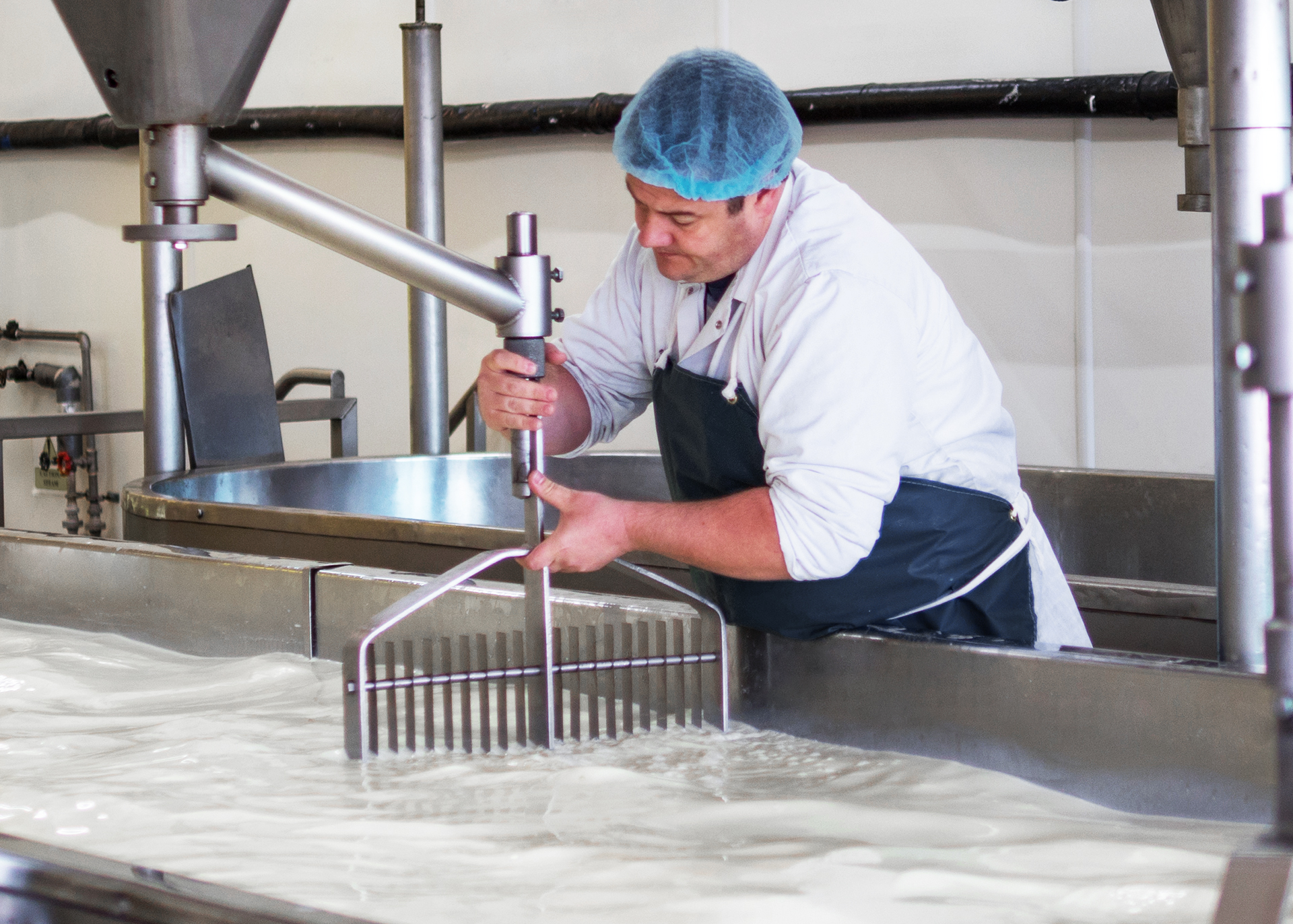Order Cheese for Sale Online Melbourne's Trusted Cheese Makers
Order Cheese for Sale Online Melbourne's Trusted Cheese Makers
Blog Article
Understanding the Science Behind Cheese Manufacturing: From Milk Option to End Product
The complex procedure of cheese manufacturing begins with the careful selection of milk, an option that profoundly affects the final product's flavor and structure. Recognizing the pivotal function of bacteria in fermentation reveals exactly how these bacteria transform lactose right into lactic acid, an essential active ingredient in developing the cheese's character. cheese shop melbourne.
Milk Option Refine
The selection of milk is a vital action in celebrity manufacturing process, as it directly affects the flavor, appearance, and high quality of the end product. Various variables must be thought about throughout this choice, consisting of the source of the milk, the breed of the pets, and their diet plan. Cow's milk, goat's milk, and lamb's milk each have distinct residential properties that contribute to the unique features of different cheese varieties.

In addition, the nutritional content of the milk, influenced by the pet's diet regimen, can change celebrity's final characteristics. Top notch milk, sourced from healthy pets, makes sure a superior cheese item, emphasizing the relevance of rigid quality control procedures in the milk selection process. Hence, careful consideration in milk selection is important for effective cheese manufacturing.

Role of Microorganisms in Fermentation
Complying with the careful choice of milk, the fermentation process plays a crucial function in cheese production, where germs are presented to transform the milk into cheese. The main function of these microorganisms is to convert lactose, the sugar existing in milk, into lactic acid. This acidification not just alters the pH of the milk however likewise plays an important duty in flavor growth, texture, and conservation of the end product.
Lactic acid microorganisms (LAB), such as Lactococcus and Streptococcus types, are typically made use of in cheese production because of their ability to flourish in milk and their payment to the fermentation process. The metabolic tasks of these microorganisms result in the manufacturing of various metabolites, including taste substances and antimicrobial substances, which hinder spoilage organisms and pathogenic germs, thereby enhancing cheese security.
Furthermore, the fermentation process affects the total characteristics of celebrity, including its fragrance, taste, and appearance. Different stress of microorganisms can pass on unique tastes and add to the unique accounts of various cheese types. Hence, the choice of microbial societies is a vital action in achieving the wanted cheese high quality and uniformity.
Coagulation and Curd Development
In the cheese production process, coagulation marks an essential shift from liquid milk to strong curds. This procedure is typically complemented visit this site right here by the acidic atmosphere produced by lactic acid bacteria, which better aids in coagulation by lowering the pH of the milk.
The resulting curds are created as the liquid whey starts to separate. Variables such as temperature level, the quantity of rennet made use of, and the time permitted for coagulation are necessary in identifying the texture and quality of the curds. For example, higher temperature levels and longer coagulation times normally yield stronger curds, suitable for more challenging cheeses. cheese makers melbourne.
As soon as curds are formed, they are cut right into smaller items, permitting whey to leave extra efficiently. This action is essential, as it affects the dampness content and total qualities of the final cheese product. Correct administration of coagulation and curd development is vital for attaining specific cheese styles and preferred taste profiles.
Aging and Flavor Growth
After the curd has been formed and whey has actually been drained pipes, the next phase in cheese production is aging, likewise recognized as maturation. This vital procedure considerably affects celebrity's last flavor, structure, and fragrance. During aging, different biochemical and microbiological makeovers occur, affecting the general sensory account.
The aging setting, including temperature and humidity, plays an important function in taste growth. Enzymes and microorganisms present in the cheese assist in the breakdown of proteins and fats right into smaller sized molecules, resulting in the formation of amino acids, fats, and unstable compounds. These improvements contribute to the complexity of taste and fragrance, with unique accounts emerging based on the specific cheese selection.
In addition, the duration of aging is crucial; much shorter aging durations commonly produce milder flavors, while longer maturation cause more robust and nuanced accounts. Variables such as the milk resource, cheese type, and specific aging techniques better boost the diversity of flavors generated. Inevitably, aging is a delicate balance of time, ecological conditions, and microbial activity, finishing in the special qualities that specify each cheese range.
High Quality Control in Cheese Production
Making certain high requirements throughout the cheese manufacturing process is important for supplying a top quality product that fulfills consumer expectations - cheese makers melbourne. Quality assurance (QC) includes numerous phases, starting from raw milk choice to the final aging procedure. Each stage calls for precise attention to detail to avoid contamination and make sure consistency
Throughout milk selection, producers need to assess variables such as fat material, pH levels, and microbial high quality. Regular testing for somatic cell matters Full Report and bacterial lots is vital to guarantee the milk's viability for cheese making. In the manufacturing phase, QC procedures consist of keeping an eye on the temperature level, acidity, and rennet activity, which significantly influence appearance and taste.
As cheese matures, continual sensory evaluations and lab evaluations are performed to evaluate taste growth, texture, and overall high quality. Any kind of deviations from established standards require corrective actions to preserve item honesty.
Furthermore, documentation and traceability are important Full Article elements of reliable quality assurance, enabling producers to track the cheese from farm to consumer. By carrying out durable QC methods, cheese manufacturers can not only enhance product quality but also develop consumer depend on, guaranteeing their location in an open market.

Final Thought
Finally, the scientific research of cheese production encompasses numerous critical points, each considerably impacting the end product. The cautious option of milk, the necessary function of microorganisms in fermentation, the improvement of fluid milk into curds via coagulation, and the aging process jointly add to the advancement of unique tastes and textures. Moreover, stringent quality assurance measures make sure that each cheese variety fulfills recognized standards, consequently enhancing customer complete satisfaction and maintaining the stability of the cheese-making practice.
Report this page